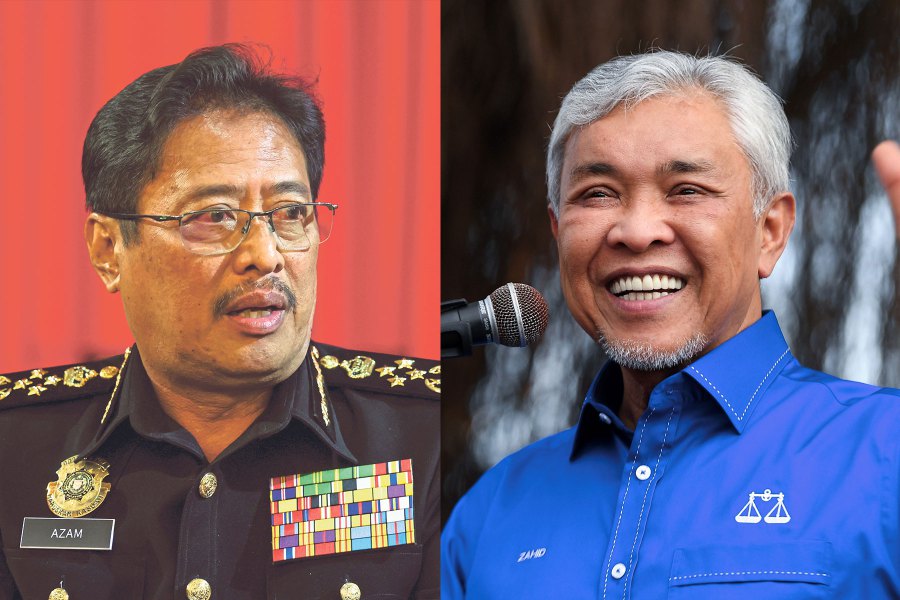Pas is angry and so too is the Malaysian United Democratic Alliance (Muda). They are just part of the angry people on the bandwagon of those incensed with the Malaysian Anti-Corruption Commission (MACC).
To be fair not many, especially those in the crosshairs of the graft-busters, can ever be said to be happy with the agency tasked to weed out the slimy, corrupt individuals in society.
However, this time the anger is not directed at the commission as a whole but at MACC chief commissioner Tan Sri Azam Baki.
He has been singled out for condemnation by the Islamist party following his dismissal of calls to act against Deputy Prime Minister Datuk Seri Dr Ahmad Zahid Hamidi.
Pas' anger was fuelled after Zahid — who is also rural and regional development minister — announced an additional grant of RM100,000 for youth development activities, as well as an of RM250,000 to the Terengganu Youth Council and RM200,000 for motoring associations in the state while on his campaign rounds.
The announcement was questioned by various parties as it was given in the run-up to the state elections.
Terengganu is among the six states where the state elections will be held besides Selangor, Penang, Negri Sembilan, Kedah and Kelantan.
Pas deputy president Datuk Seri Tuan Ibrahim Tuan Man contended that Zahid's announcement was nothing short of giving bribes to secure votes.
He also accused the MACC of practising double standards as the commission considered the Kelantan government's move to bus home voters to vote as a corruption offence.
However, Azam has brushed off such claims by making it clear that the MACC considered Zahid's pledge as an ordinary government initiative.
His explanation, however has been brushed off as nothing but a pathethic attempt to protect Zahid.
To be fair, the MACC has been unfairly painted as being unprofessional, biased and favouring the government.
Azam's statement that Zahid did not commit any offence is based not just on facts but also case law, which has come to be known as the Pengkalan Kota case.
Those familiar with the issue would know how then finance minister Tengku Razaleigh Hamzah ended up in court in 1981 after being accused of having committed a corrupt practice under the Election Offences Act 1954 following his speech during the Pengkalan Kota by election.
Ku Li, as he is popularly known, had then been accused of having said that if Barisan Nasional (BN) won, the government would allocate more funds for development in the area.
He was alleged to have made this statement at a BN ceramah, in support of the coalition candidate Lim Kean Siew.
The DAP candidate for the seat — Teoh Teik Huat — sought a court declaration to annul the election results
To cut a long story short, the court ruled in Razaleigh's favour, thus setting a precedent that the pledge did not contravene any laws.
Among other things, the court ruled that whatever pledged by Razaleigh was done in his capacity as a serving minister managing the country's coffers.
It also ruled that whatever pledged by Razaleigh was for the good of the people in general and not targeted to specific voters, apart from the fact that he was not contesting in the by-election.
Similarly, in Zahid's case, it would seem that the MACC is bound by what has been decided by the courts concerning an instance of pledges made by politicians.
Azam is just a law enforcement authority who is bound to follow existing laws.
Unhappy detractors would be better off channelling their energy to change the law to spell out election offences clearly.
This practice of making election pledges by serving politicians in the run-up to polling day must come to an end.
Bribery is a form of corruption, which Transparency International defines as the abuse of entrusted power for personal gain.
Simply speaking, it concerns the unethical practice of offering something to gain an illicit advantage.
Admit it or not, that is exactly what has been and is happening in every election we have seen in the past few decades.






